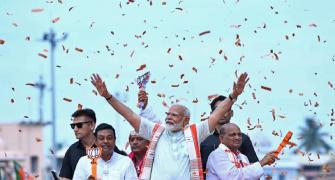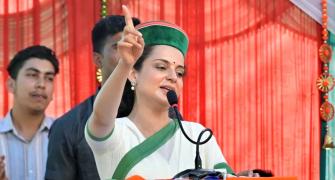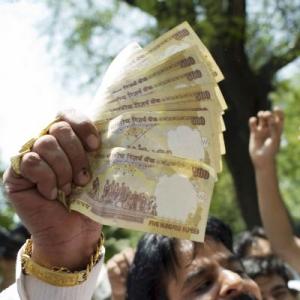 Former Foreign Secretary Shyam Saran alleges that since the Washington wants transactional, short-term relationship with India, the strategic convergence between the two countries has diminished
Former Foreign Secretary Shyam Saran alleges that since the Washington wants transactional, short-term relationship with India, the strategic convergence between the two countries has diminished
In perhaps the first major conference on the United States-India strategic partnership in the aftermath of the Khobragade controversy that plunged the bilateral relationship in a downward spiral and is now in the process of being resurrected, the undeniable consensus among the panelists and participants was that much ballyhooed strategic convergence between Washington and New Delhi has dissipated.
The conference titled Forging Ahead: Restoring Momentum to the US-India Relationship, and featuring erstwhile senior Indian diplomats, ex-cabinet officials, business and industry leaders and chief executives and even the former chairman of India’s Atomic Energy Commission Anik Kakodkar and India’s ex-chief spy, K C Verma, who headed the Research and Analysis Wing, was hosted by the Carnegie Endowment for International Peace, a leading Washington, DC think tank.
Carnegie president Jessica Mathews bemoaned that while she would not describe the partnership as in deep trouble, argued that it “is stuck right now”.
Former Foreign Secretary Shyam Saran, asserted that the “strategic convergence that was really at the heart of the transformation, which took place around 2004-2005, that particular strategic convergence has got somewhat blurred.”
He acknowledged, “The positive relations between India and the US was of recent vintage and that up to the time of the turn of the century -- relations between Delhi and Washington ‘ere mostly prickly and not very positive.”
Saran argued, “It was only after the Cold War and once we got over the problem of India’s nuclear weapons tests that a new situation -- a strategic situation emerged in our region -- and the relationship between the two sides started improving.”
He conceded, “What was rather surprising was the speed with which the transformation came about.”
“But people forget that it took a lot of hard work by people on both sides to get over the legacy of the past and start a new kind of relationship,” he said.
Saran noted, “It was not easy because the US had to either deal with adversaries or had to deal with allies, and India did not quite fit into those categories, and I am not surprised that the relationship has been somewhat difficult to manage.”
“But precisely for that reason, it is very important that both sides have to keep their eyes on the ball and not take the relationship for granted,” he said.
Saran lamented, “Partly over the last few years, we have been in a sense prisoners of our own rhetoric.”’
He referred to the laundry list of clichés that permeate any description of the relationship, from ‘India and the US are natural allies,’ to the ‘largest democracy in the world and the oldest democracy in the world,’ and ‘a natural fit with so much in common,’ to the ‘Indian American community in the US -- a bridge between the two sides.’
He opined, “Because of that, the kind of attention that was required, to nurture the relationship, keeping in mind that negative legacy of the past -- the need to see that the relationship is always nourished, is always nurtured and what we had in the last few years -- that particular spirit has diminished.’
Saran acknowledged, “It has partly diminished because the excitement about India growing at nine per cent has diminished, partly is has diminished because the US has been, after the global economic financial crisis so very preoccupied with its own domestic issues, and India too had its own crises and therefore also has been preoccupied.”
Thus, the diminution and the dissipation of the strategic convergence that constituted the heart of the transformation of the Indo-US partnership of the mid-2000’s, he said.
Saran said, “This has always been a problem with India-US relations -- that somehow the big picture very often falls through -- because of tactical compulsions. It falls through the crevices and we lose sight of what it the very important glue that keeps the relationship together.”
Saran noted, “The nuclear deal would not have been possible unless the two sides had a very strong sense of strategic convergence.”
“It was not the nuclear deal that led to strategic convergence, it was the other way around," he added.
Saran recalled, “In all the conversations that took place in the run-up to the nuclear deal, it was a sense that there was a new strategic situation developing in the Asia Pacific region. You had the emergence of China, which was bringing about a major transformation in the economic and security architecture of the region.”
“And, if there was a strong convergence between India and the US, it was shaping the new architecture that was going to inevitably emerge, whether it was on the security side, whether it was on the economic side, then was it not important for India and the US to work together, not for tomorrow, not for the day after, but for the long-term, because this is not a challenge which is a tactical challenge -- this is a strategic challenge,” he said.
Saran said, “So, this was the strategic glue that brought India and the US together, and yes, India knew there was no containment of China and the US knew that too.”
But, he said there was convergence of thought that it was possible for both countries to work together “to make certain that this particular region did not fall under the domination of one emerging power.”
Saran argued that over the past several years, this strategic challenge has not become less, but even more important than it ever was, and yet, India and the US “have not been able to really work together in keeping the strategic challenge alive”.
And then taking a dig at US foreign policy, he said, “Very often it happens that the tactical compulsions of the day so preoccupy the US that this big picture is lost. So, whether it is in terms of how to deal with the withdrawal from Afghanistan, how to deal with the situation the US sees emerging in Pakistan of the Gulf, what’s happening in Syria, what’s happening in Iran, and also the kinds of changes that are taking place in our own region in Southeast Asia for example.”
Saran said the strong sense of convergence and the conversations that should have been taking place with respect to Afghanistan was not only absent but both Delhi and Washington seeming were “heading in somewhat separate directions.”
He acknowledged that post the US and North Atlantic Treaty Organisation withdrawal from Afghanistan, India would definitely have to deal with the situation that emerges by itself and couldn’t count of Washington’s support, “but it would have been nice it the US was seen as a partner to take care of that particular contingency.”
Continuing to slam this tactical compulsions policy that seems to rule US foreign policy where it responds to situations, Saran said, “India is in a situation where it cannot make pay-offs in the short run,” and argued, “If there is a value to the relationship with India, it is in the longer-term.”
But he said, obviously, “The kind of transactional relationship that sometimes overwhelms the United States, India is not able to deliver that.”
“India is not able to make a difference in terms of the current tactical compulsion that the US may have with the withdrawal from Afghanistan. Nor is it able to turn around and budge the US if something goes wrong. So, India may get annoyed, India may be an irritation, but India has never turned around and actually harmed the US,” he added.
Saran said consequently, “There is that sense of that complacency -- ok, the Indians will get a little annoyed, but what does it matter. The Indians will not be able to give us anything that we really value in terms of the current problems that we are facing.”
Thus, the distinguished diplomat warned, ‘Unless there is an effort made by both sides to really keep that big picture in mind—to really look at what that long-term convergence is, and how it is becoming more compelling, more urgent than it has ever been before,’ the relationship would continue to diminish.
Saran asserted that it was imperative to ‘refocus on that larger picture’ to get the relationship back on track, and said whether the upcoming elections would make a difference or not were ‘larger-term issues, continuing issues.’
“So, I don’t want to anticipate that there will be a very big change on how India looks at the world,” he said.
But, Saran hoped that the US, “Because there is a change, a certain excitement that may appear because of the change in India, perhaps there will be a change in perception, at least in regard to India’s role in the world.”
Another former senior diplomat, Satinder K Lambah, whose diplomatic career also spans more than four decades, said, “On Afghanistan, we have a common analysis of the situation, which is remarkably similar, but we have not been able to work together.”
But, he said, “We should continue to remain engaged because risks from the region are there and have to be met.”
Lambah also earlier noted that Washington’s de-hyphenation of US relations with Pakistan “and getting past that old mindset of trying to mediate between the two,” was what had helped “to understand each other and has helped in taking our bilateral relationship to a high level -- that has helped us understand the situation in the area.”
But he warned, “Conversely, if there is any attempt to re-do it (to mediate between Delhi and Islamabad), would be to my mind be unfortunate and regressive.”
Lambah also during the interactions that followed, and to one pointed question as to what the US doesn’t seem to understand vis-à-vis India’s national interests and causes much angst, said, “The US takes action in the South Asia region, which complicates our diplomacy without enough consultations.
Image: Former Foreign Secretary Shyam Saran speaks at a news conference at the Indian high commission in London. Photograph: Luke MacGregor










